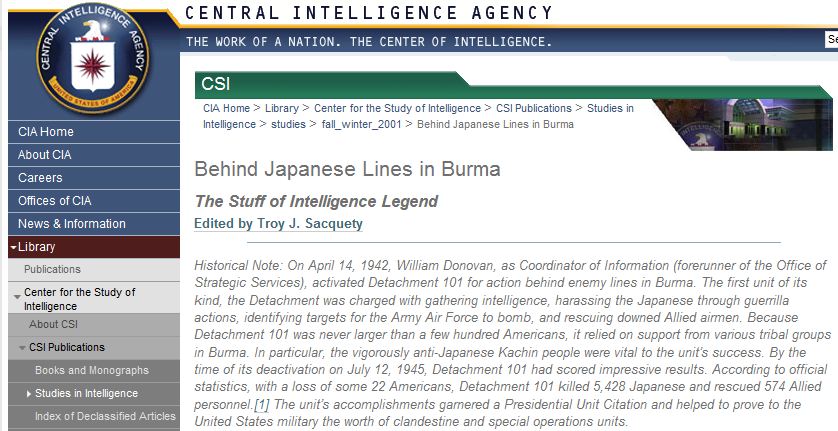Via the Lowy Institute’s endlessly useful Interpreter I recently found a set of questions that Joshua Kurlantzick thinks the Director of the Central Intelligence Agency, David Petraeus, should be asking the Burmese if he visits Naypyidaw. Kurlantzick has some good questions.
And I was also intrigued to see a response to the questions from Professor David Steinberg (interviewed by New Mandala here). Steinberg suggests:
…a visit by Petraeus any time in the near future would be an error in US policy that has been deftly handled by the Obama administration to date. The reforms are still fragile, and should not be seen as manipulated by the U.S., but this is the signal that his visit would convey to many Burmese, as well as to the Chinese. Our history of CIA involvement with the Kuomintang and in other fields in Burma are remembered. The US may have forgotten this, but the Burmese surely have not.
Steinberg has me thinking about what other historical issues and previous interventions will need to be recalled (or reconciled) before Burma and the rest of the world can move towards a fuller re-alignment of their policies and interests. The CIA has some interesting history in Burma, going right back at least this far. And I suppose for some British government institutions the legacy in Burma is even more complicated. I think we can add Steinberg’s warning about history to the long list of issues that will need to be watched in the months and years ahead.
From a different direction, Bertil Lintner is clearly not impressed with the notion of high-level CIA involvement in Burma’s affairs. In a long critique of the current state-of-play he writes:
The CIA is not exactly known for being a leading proponent and promoter of liberal values in the developing world; the agency has other priorities such as Myanmar’s strategic importance to the US.
As Lintner’s article demonstrates we are watching a huge shift in priorities, interests and analysis. What was mainstream is fringe. What was impossible is ordinary. What was derided is embraced. We tend not to come to terms with these things as they happen. But the prospect that other senior US officials are seriously considering visits to Burma should not be a shock. It is, again, a sign of the times.
 Facebook
Facebook  Twitter
Twitter  Soundcloud
Soundcloud  Youtube
Youtube  Rss
Rss 